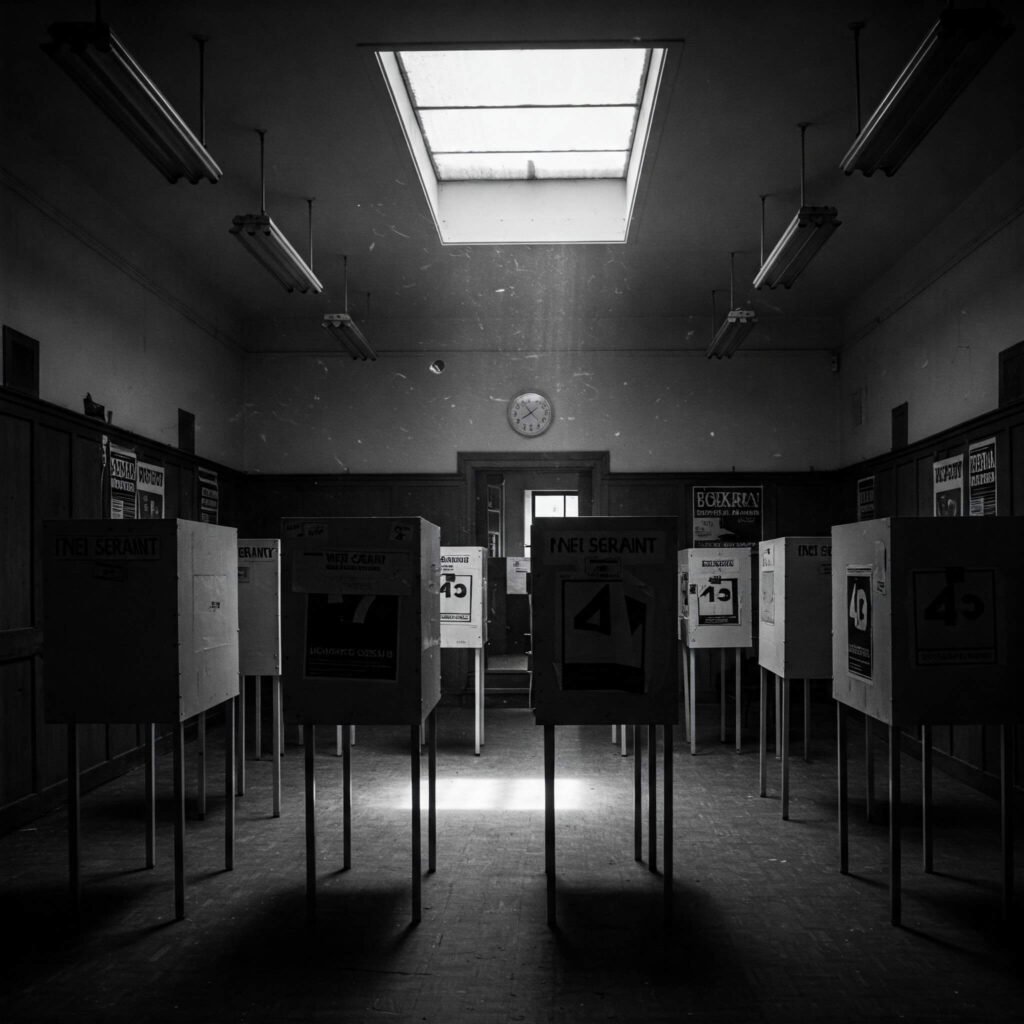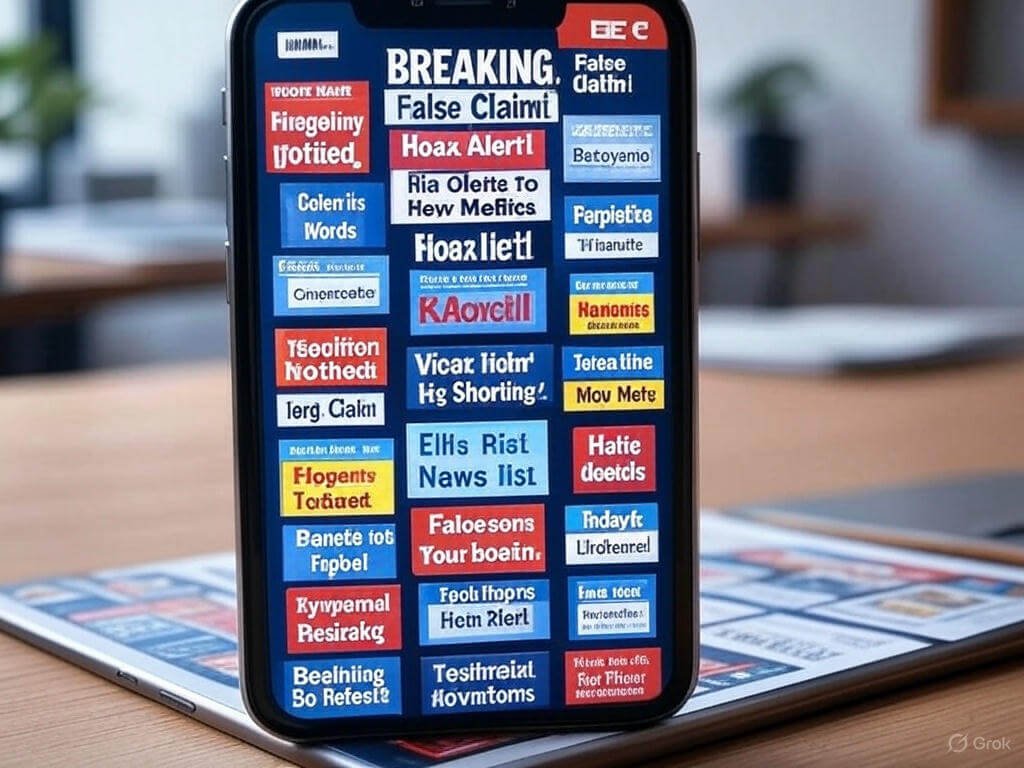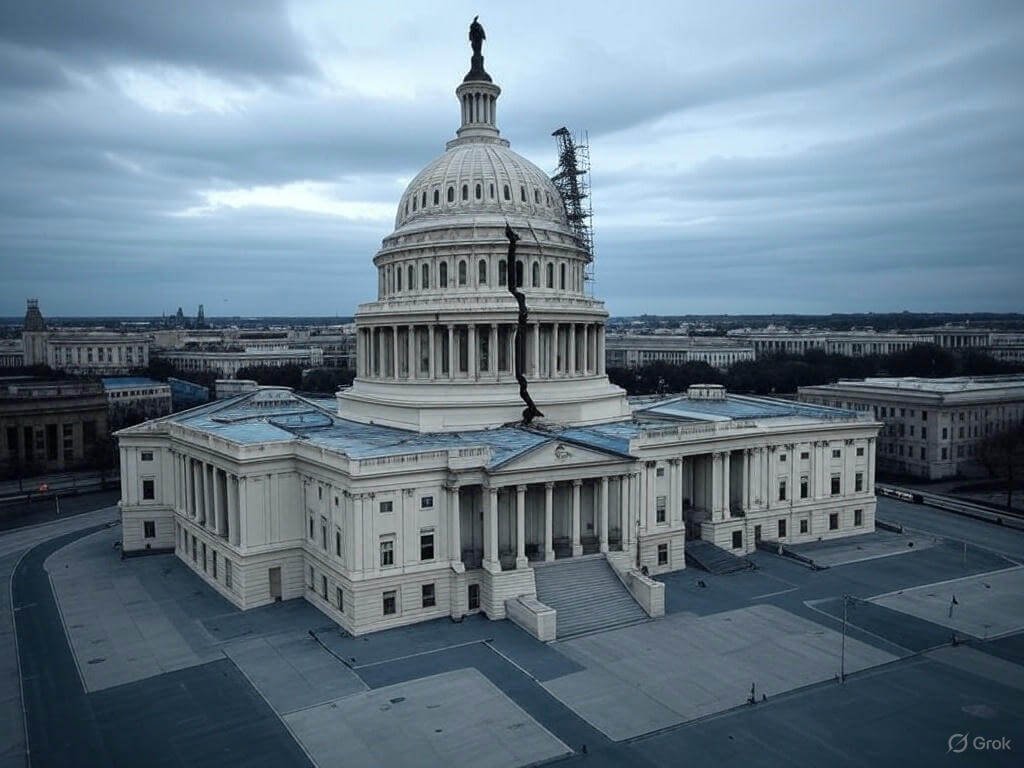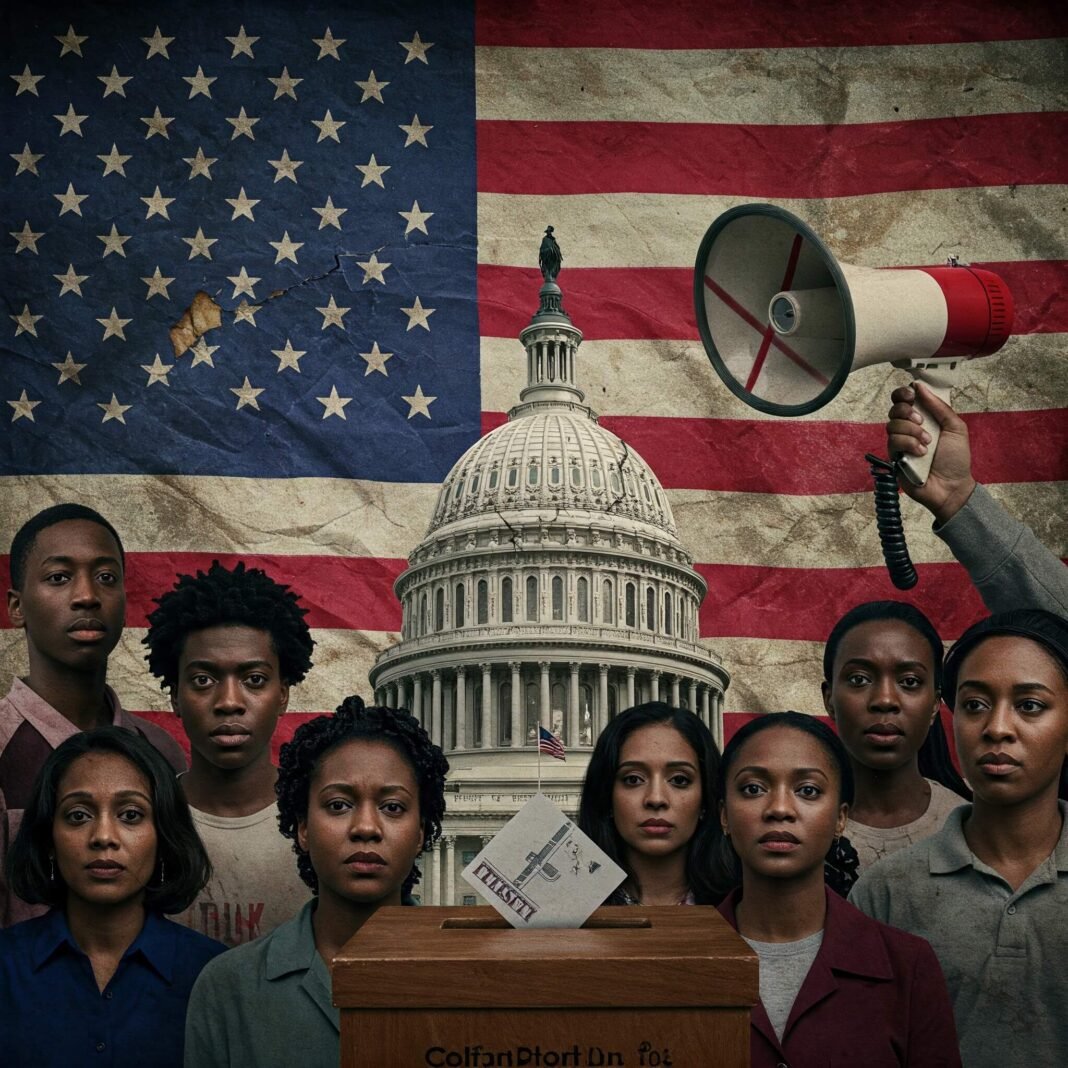Introduction: Unpacking the Silent Crisis in American Democracy
The silent crisis in American democracy is eroding the foundations of our system, often unnoticed until it’s too late. In 2025, issues like voter apathy, disinformation, and polarization threaten the health of our democratic institutions. This editorial dives into the silent crisis in American democracy, exploring its causes, real-world impacts, and actionable steps to fight back. Let’s shine a light on this quiet danger and spark change together!

1. Voter Apathy
Why Apathy Fuels the Silent Crisis
Voter turnout in the U.S. lags behind other democracies, with only 66% of eligible voters participating in the 2020 election, per U.S. Census Bureau. Apathy undermines representation and empowers extremists.
Key Drivers
- Distrust in Institutions: Many feel votes don’t matter.
- Inconvenient Voting: Long lines and limited access deter participation.
- Lack of Education: Civic knowledge is declining.
Takeaway: Register to vote and encourage friends to join you at Vote.gov.
2. Disinformation: Undermining the Silent Crisis in American Democracy
How Disinformation Worsens the Silent Crisis
False information spreads rapidly on platforms like X, with 62% of Americans encountering fake news weekly, per Pew Research. This erodes trust and distorts democratic discourse.
Spread Mechanisms
- Social Media Algorithms: Amplify sensational content.
- Foreign Interference: Bots and trolls manipulate narratives.
- Echo Chambers: Reinforce biased beliefs.
Takeaway: Verify news with trusted sources like FactCheck.org.

3. Political Polarization: Deepening the Silent Crisis
Polarization has reached historic highs, with 80% of Americans viewing the other party as a “threat,” per Gallup. This divides communities and stalls governance.
Contributing Factors
- Partisan Media: Outlets fuel divisive narratives.
- Gerrymandering: Creates safe, extreme districts.
- Tribal Politics: Loyalty trumps compromise.
Takeaway: Engage in civil discussions with differing viewpoints to bridge divides.
4. Erosion of Norms: A Hidden Silent Crisis in American Democracy
How Norm-Breaking Fuels the Silent Crisis
Unwritten democratic norms—like respecting election results—are fraying. The January 6, 2021, Capitol riot highlighted this, with 147 lawmakers objecting to certified results, per CNN.
Warning Signs
- Election Denialism: Undermines trust in outcomes.
- Judicial Overreach: Politicized courts threaten balance.
- Power Grabs: Leaders bypass checks and balances.
Takeaway: Support organizations like Brennan Center to protect democratic norms.

5. Solutions: Combating the Silent Crisis in American Democracy
How to Address the Silent Crisis
While the challenges are daunting, action can reverse the silent crisis. Grassroots efforts and policy reforms are already making a difference, like expanded voting access in some states.
Actionable Steps
- Vote Regularly: Participate in local and national elections.
- Educate Others: Share reliable information with your network.
- Advocate Reforms: Support fair redistricting and media literacy programs.
Takeaway: Join a local civic group to boost community engagement.
Conclusion: Confronting the Silent Crisis in American Democracy
The silent crisi in American democracy threatens our shared future, but it’s not unstoppable. By voting, fighting disinformation, and fostering dialogue, we can rebuild trust and resilience. This crisis may be quiet, but our response shouldn’t be. What step will you take to strengthen democracy? Share below and let’s act together!





